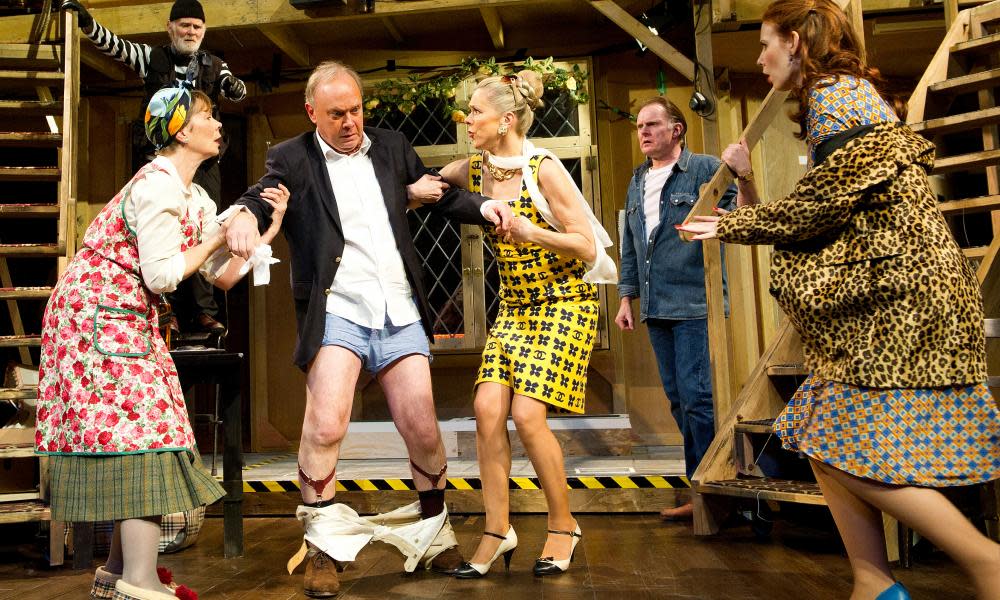Noises Off: the farce masterclass that is truly revealing

All plays, wrote critic John Lahr, are dated. He meant, I assume, that all plays are inevitably products of a particular historical moment. But the best plays also transcend their time and that is palpably true of Michael Frayn’s Noises Off. This month a 40th anniversary production of the classic farce, starring Felicity Kendal, Tracy-Ann Oberman and Matthew Kelly, opens at the Theatre Royal in Bath before heading off on a short tour.
Viewed logically, Frayn’s caprice should by now have had its day. After all it is predicated on the performance of an antic farce, Nothing On, that has distinct echoes of Ben Travers, Brian Rix and Ray Cooney; and, although the last of these is buoyantly alive, no one could pretend their work is still a staple of the touring circuit. But Frayn is not simply writing a witty pastiche but also charting the progressive deterioration of his play-within-a-play. A nightmare dress-rehearsal is followed by a vision of backstage mayhem and finally a descent into public madness.
But what is it that gives Frayn’s play its iron-clad durability? Michael Blakemore, who directed its first production, unerringly put his finger on one reason. In his book, Stage Blood, he compares Noises Off with another play he directed, The Front Page. Both, he suggests, defy the rules of farce by presenting us with believable people: the actors in Noises Off may be playing stock types – the randy estate agent, the clackety maid – but they themselves are drawn from life. I especially like the one who, having read his Stanislavsky, has to find a psychological motivation for routine comic business and the sottish oldster who exists in his own private world. He always reminds me of a story about the late, great Wilfred Lawson who, watching a performance of Peer Gynt, allegedly turned to his companion and triumphantly cried “This is where I come on.”

Like all first-rate plays, Noises Off also acts as a metaphor. Frayn himself identified it when, in an introduction to his first batch of collected plays, he wrote “what they are all about in one way or another is the way in which we impose our ideas upon the world around us”. A group of actors in Noises Off have learned their lines and rehearsed their responses only to find that “the great dark chaos behind the set, inside the heart and brain” invades the public performance. The play is about the world of farce but is, by extension, about life itself: we seek to structure our daily existence and yet through chance or character – a missed train, a rash word – it is always on the verge of splintering into fragments.
I would go even further and suggest that comedy and farce, at their very best, are much more than simple laughter-machines. We obviously go to them for escape rather than education but, maybe subconsciously, we respond to their ideas. Alan Ayckbourn’s Bedroom Farce suggests that the temple of Eros referred to in the title is actually the place where relationships crash and burn. Peter Shaffer’s Black Comedy implies that only in the dark do hidden truths about character come to light. And, going back further in time, Oscar Wilde’s The Importance of Being Earnest is both a flawless idyll and a running commentary on class, morals, money, marriage and late Victorian society. If Noises Off has achieved classic status, it is because it is extremely funny and embodies a fundamental truth about the fragile artifice of order in both theatre and the world beyond.
Noises Off is at Theatre Royal Bath, 22 September-1 October; Richmond theatre, 4-15 October; Theatre Royal Brighton, 18-22 October; and Cambridge Arts theatre, 25-29 October.


